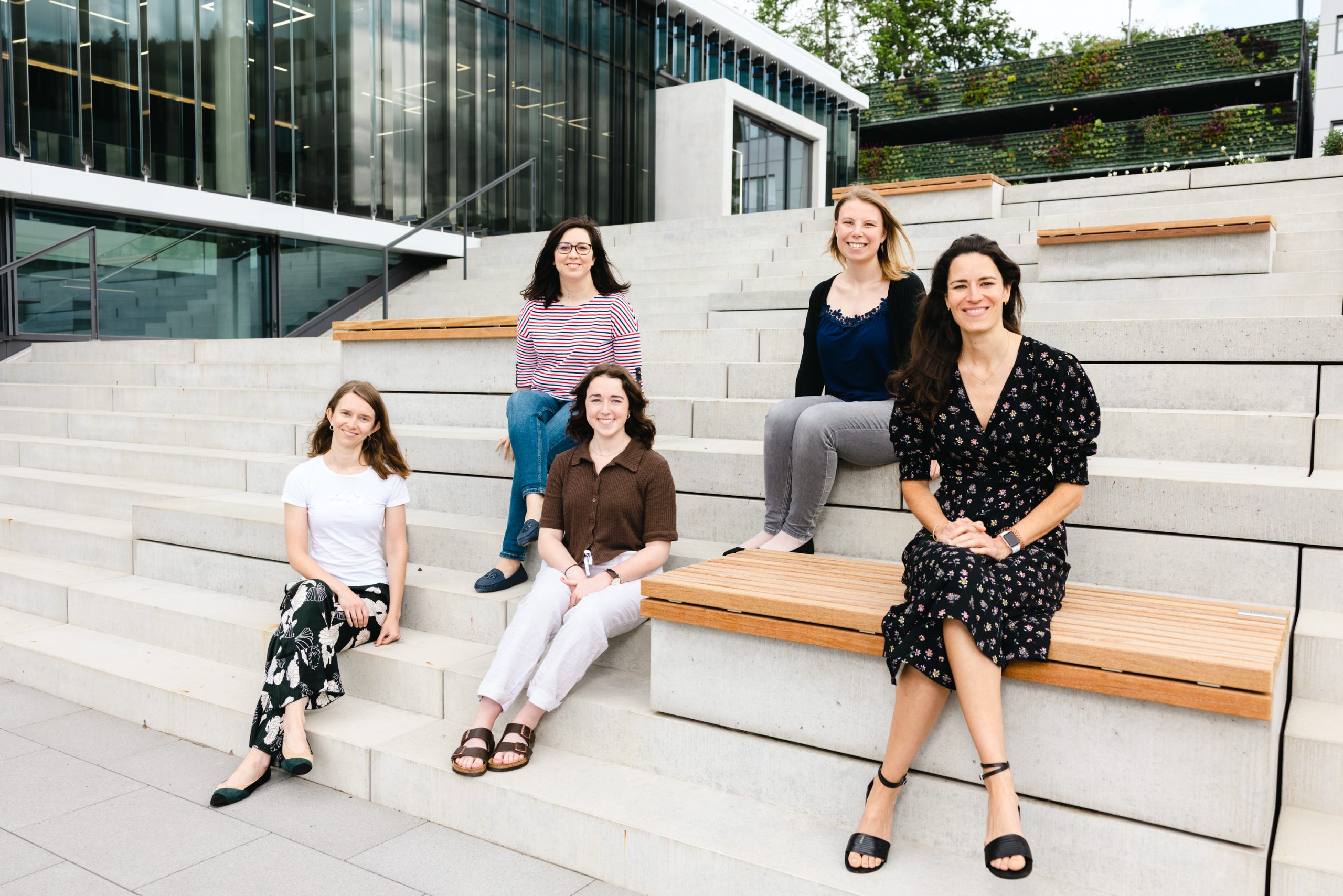The women of EMBL Heidelberg IT Services

By Ivy Kupec, EMBL Communications
At the age of five, Dame Stephanie ‘Steve’ Shirley arrived in the UK from Germany, as part of the Kindertransport that placed young Jewish children in foster care during a war that threatened them and their families. Shirley, whose birthday is 16 September, initially declined a college education because she was only allowed to study botany. However, she went on to learn computer coding and hardware development, ultimately starting her own software company, Freelance Programmers.
Overcoming adversity like this is both remarkable and inspirational for the many women who pursue careers in computer science today. Female role models in IT remain elusive, so Shirley’s accomplishments continue to stand out as she turns 89 years of age this year.

“In times when young women had little to no access to science and education, she tried to make the impossible possible,” said Elena Elenkova, a web developer in EMBL Heidelberg’s IT Services department. “She attended maths classes after work to get her degree and with just £6 started her own company. Though not well known, Shirley’s story is inspiring and shows how smart women can make a huge difference in a male-dominated field.”
At EMBL Heidelberg, IT Services has sought to attract women in its recruitment. Currently, women make up about a sixth of the Heidelberg IT services team. On the occasion of Shirley’s birthday, it seemed fitting to visit with these women to learn more about their diverse career and workplace choices which have led them from Mexico, Bulgaria, Ireland, Brazil, and within Germany to EMBL.
“I was already fascinated by computers at an early age probably because my father has a small computer sales and service company,” said Elenkova, who now develops software that can be deployed to EMBL’s overall infrastructure, including a Data Management Application to support groups in managing their scientific data. “I think women offer a different way to think about technology and present it to the world. In my opinion, too few women decide to follow computer science-related careers because of the stereotype that IT doesn’t ‘naturally’ fit women.”
However, young talents such as Abbie Delaney, one of three Irish trainees in the department due to a collaborative agreement with University College Cork, prove that this stereotype is definitely changing.
“Careers associated with IT have expanded into many areas, such as design, business solutions engineering, and even sales, so it was a perfect fit for me when I found myself indecisive about my career path,” Delaney said. “As a college student, I have observed a great camaraderie amongst women in tech. You see it right from the start – this bond between women in IT. From this comes increased collaboration and innovation, forming a supportive community of enthusiastic learners and inspirers. It’s something I’m excited to be part of.”
Jessica Klemeier has a background in international relations but works now as a Project Officer at EMBL IT Services in Heidelberg. The main focus of her work is on open science and in particular the European Open Science Cloud, a European initiative to provide seamless access to research data and complementary services across scientific disciplines and borders. “I see how closely interwoven IT and sciences from all disciplines have become and how much progress a symbiosis of the two can achieve,” she said.
For Klemeier, an impressive example of this symbiosis and how women play a significant role in this, was when the first image of a black hole went viral in 2019. “One person made a significant impression on me in that context: Katie Bouman. Of course, this achievement had been an immense team effort. For me, it was the first time I had heard of a contemporary woman, about my age, receiving fame and credit in the field of programming. It has shown me that being young and female are not insurmountable barriers anymore to success and recognition in this field.”
Daya Henzler, also an IT Services Project Officer, was attracted to tech because of its ability to change how we live and offered many career opportunities.
“While studying economics, I was very much into the field of international cooperation and development aid. But my life took a very different turn when I started working at SAP, one of the largest software companies worldwide,” Henzler said. “I found the diverse, multicultural environment had a lasting impact, including encountering the many female colleagues who showed that you don’t need a degree in computer science to pursue a career in tech. Communication, problem-solving, and attention to detail, combined with a spark of creativity, are also essential to working on IT teams.”
In her current position Henzler now focuses on IT strategy and project coordination, acting as the glue between the technical and management levels of project work in IT Services.
Lilian Lopez Montero has a business administration degree and in her role as Assistant to the Head of EMBL Heidelberg IT Services, she’s been able to leverage her skill managing organisational topics while also learning more about infrastructure and technology. “Attracting IT talent to EMBL and progressively increasing the number of women on our teams has been a challenge since I started in 2015,” she said. “We have managed to significantly grow the number of applicants by implementing different employer branding strategies and improving IT Services’ visibility. Raising awareness of how indispensable it is to have women in core IT jobs and IT-related jobs is a step forward in EMBL’s EDI vision and our goal to improve women’s professional aspirations and opportunities as a whole.”